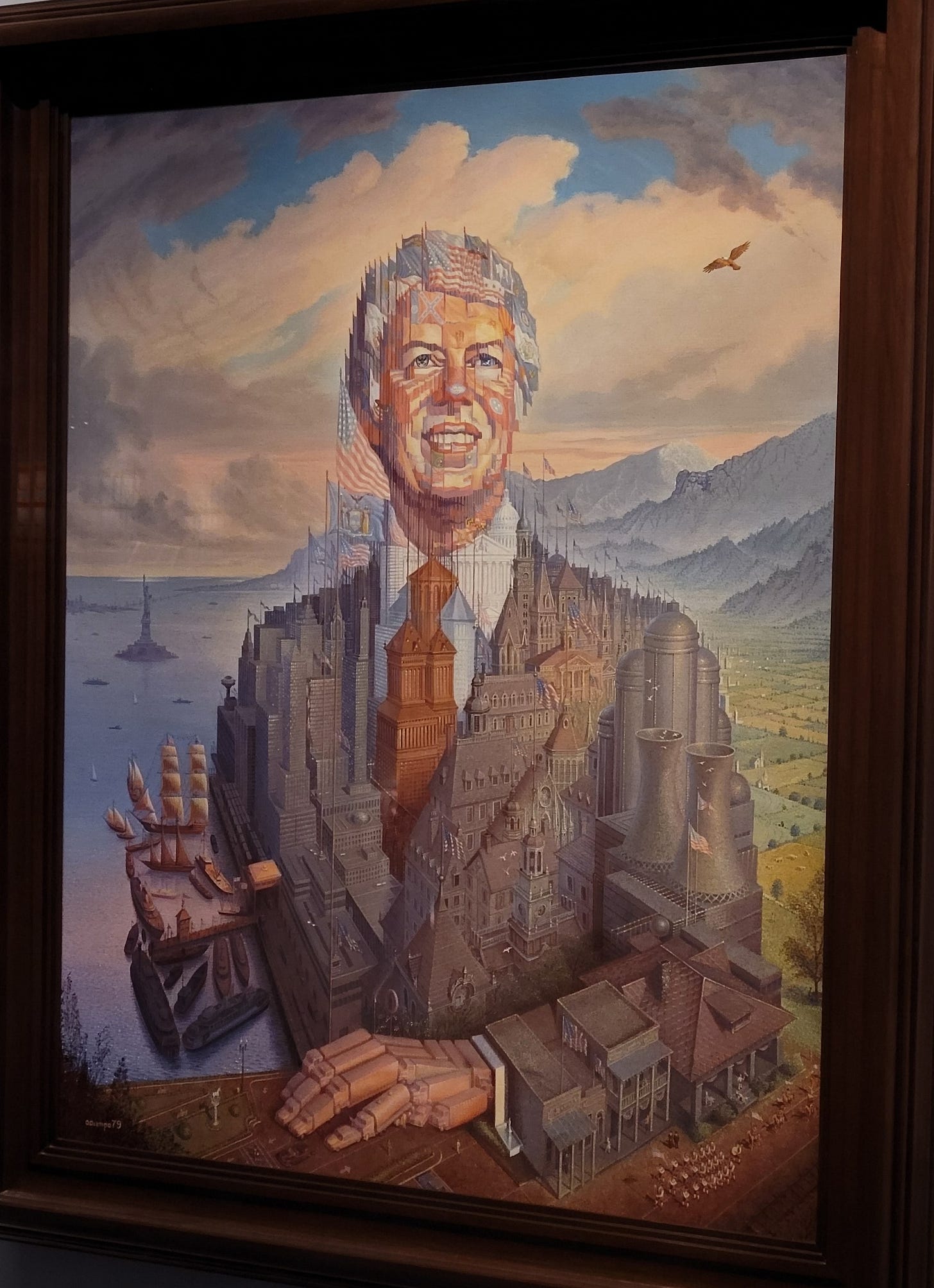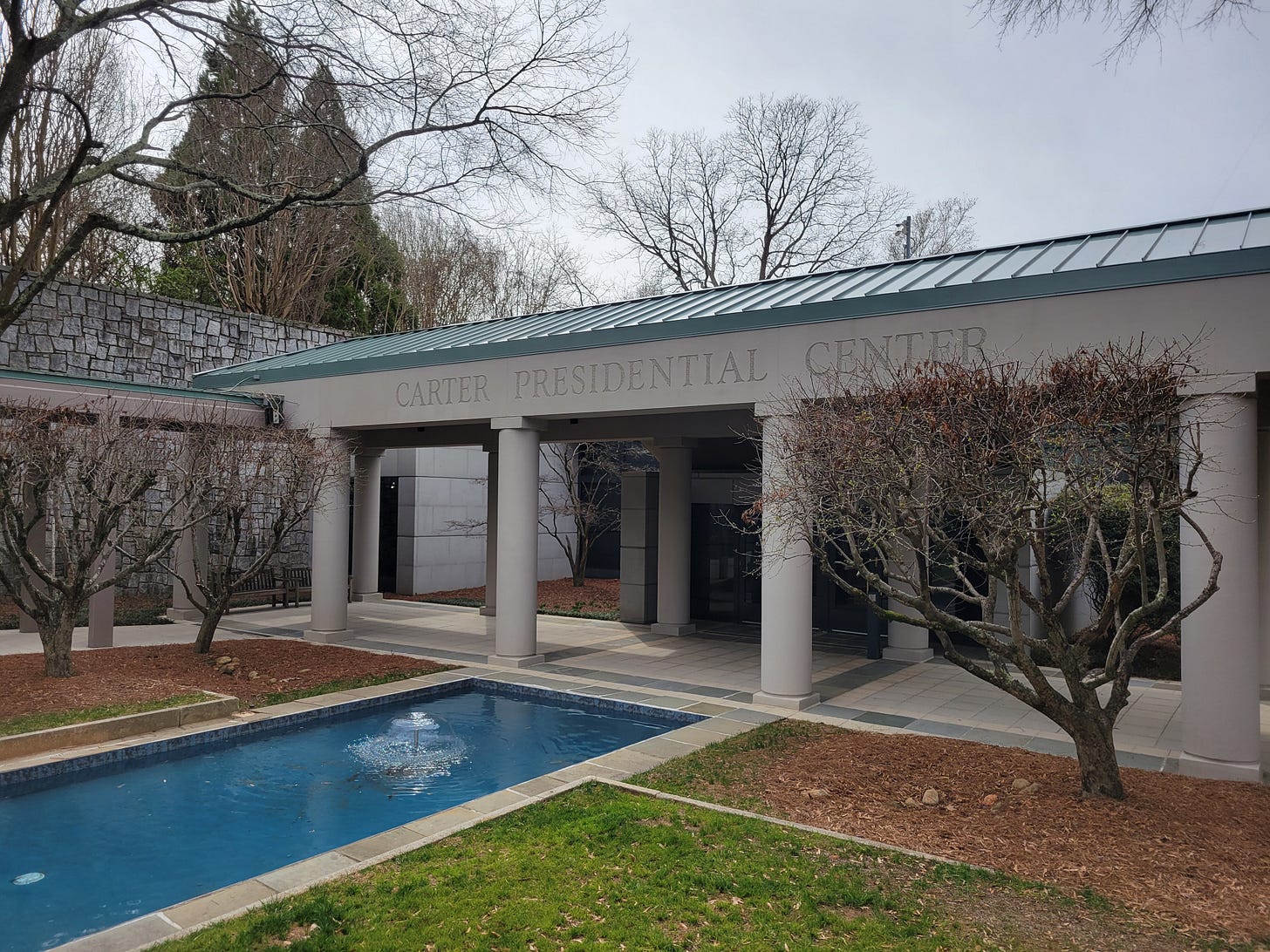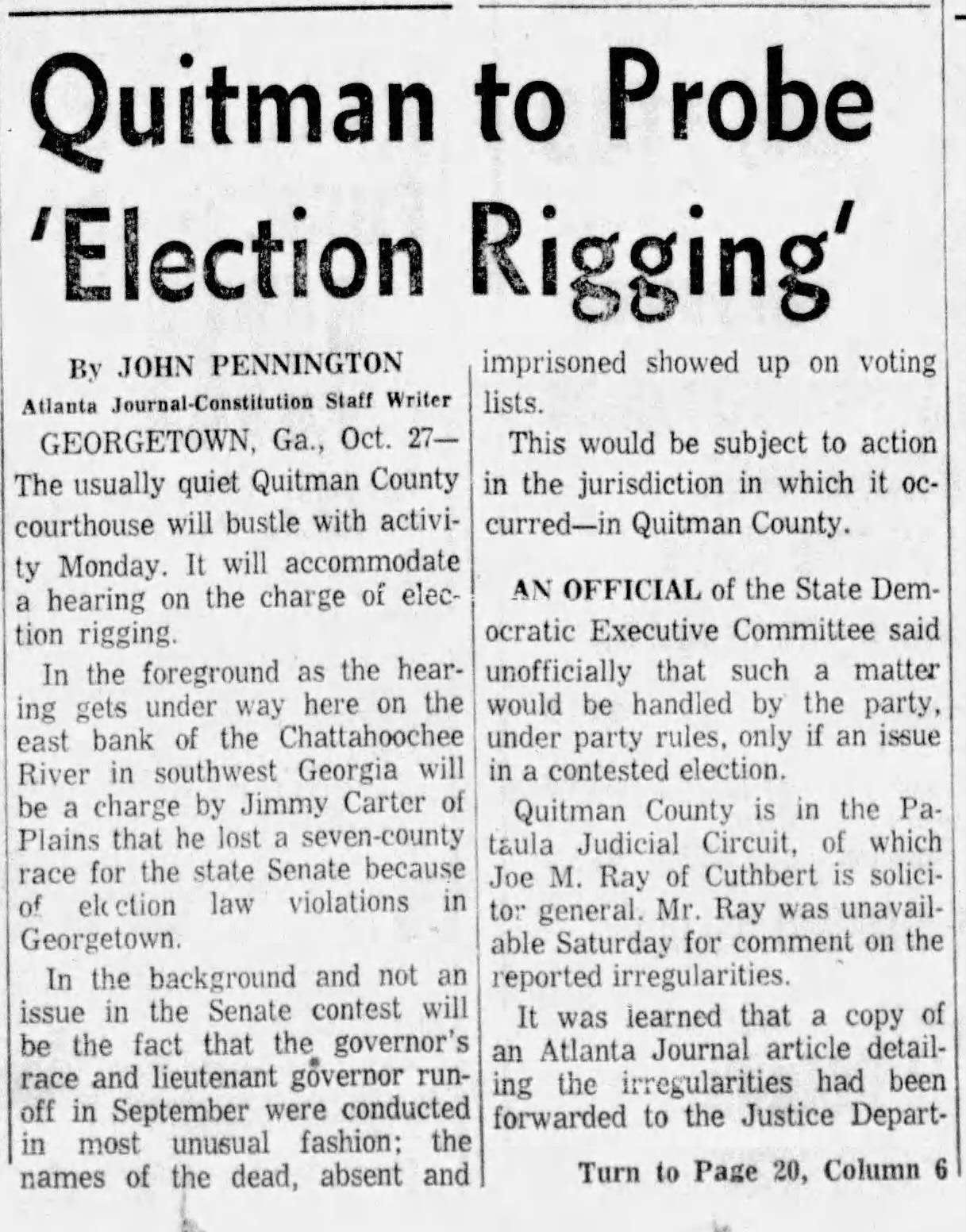In Praise of the Man from Plains
Reflections from my recent visit to the Jimmy Carter Presidential Library and Museum.
In Fall 1976, my third-grade class cast votes in the U.S. Presidential showdown between incumbent Republican Gerald Ford1 and Democratic candidate Jimmy Carter.
Aware that Ford had been in office for barely two years, having replaced the disgraced Richard Nixon in the fallout from the Watergate scandal, I figured he ought to have a shot at a full term. Accordingly, and although I agonized a bit over the matter, I threw my support behind Ford.
I forget which way the class as a whole leaned, though a short time later American adults opted for Carter, “the man from Plains,” a small town about 150 miles south of Atlanta.
Referred frequently in those days as “the peanut farmer from Georgia,” Carter was—and has continued to be—so much more than that description. Recently visiting the Jimmy Carter Presidential Library and Museum in Atlanta, my longstanding admiration for the 99-year-old deepened.
His principled decency, widespread philanthropy through organizations like Habitat for Humanity, his global impact via The Carter Center in promoting democracy through fair elections, his 77 years of marriage to Rosalynn before her death last year, his faithful Christian walk that included teaching Bible classes into his 90s…on and on goes the list of inspiring, humbling acts of a man committed to serving others.
Of course, his longevity has been an indispensable part of creating such an extraordinary legacy. The weekend of my visit Carter was marking the first anniversary of his going into hospice care—which came several years after treatment with a cutting-edge immune-boosting drug helped him beat brain cancer.
Something I learned during my visit was that in 1962 Carter initially appeared to fall short in his bid to become a state senator in Georgia. But it wasn’t over: Carter alleged that the voting had been rigged—sound familiar to what another politician claimed in 2020?
Only in Carter’s case, his allegations had merit. For one thing, “names of the dead, absent and imprisoned showed up on voting lists,” according to the Atlanta Journal-Constitution.
Carter became a state senator, which helped pave the way for two runs for Georgia governor—the second of which was successful and laid the foundation for his eventual Presidential run and triumph.
His work to ensure election integrity around the globe, through the Carter Center, has roots going back to that pivotal time when an election was nearly stolen from him.
The Presidential Library and Museum covers an extraordinary amount of ground, including Carter’s role, via the Camp David Accords, as an intermediary for Israel Prime Minister Menachem Begin and Egypt President Anwar Sadat.
For their efforts to create a framework for peace in the Middle East, Begin and Sadat received the Nobel Peace Prize—an honor that Carter himself received in 2002 for his “decades of untiring effort to find peaceful solutions to international conflicts, to advance democracy and human rights, and to promote economic and social development.”
I also got a kick out of the off-the-beaten path details, such as this sketch that Carter created on behalf of his 9-year-old daughter, Amy. In so doing, he displayed the same engineering mindset that was part of his promising career as a Navy man before his father’s death brought him back to Plains.
And here’s the finished result, the next month:
A recent “2024 Presidential Greatness Survey” placed Carter, at #22, smack-dab in the middle of our nation’s 45 Presidents. Depending on one’s politics and preferences, arguments can be made that his administration ought to be considered more or less favorably than that.
He lasted only one term in the Oval Office, hamstrung by the Iranian hostage crisis, among other challenges, before getting soundly trounced by Ronald Reagan in 1980.
While reasonable minds can differ on his effectiveness as U.S. President, is there much debate whether anyone else has had a post-presidency with nearly as much impact as that of James Earl Carter Jr.?
Here’s some good Gerald Ford trivia: he’s the answer to the question, `Who’s the only U.S. President who was born a King?’ (He was born Leslie Lynch King Jr.)
More of the back story, as found at https://www.fordlibrarymuseum.gov/grf/genealog.asp:
Just over two weeks after the birth of their son, [Ford’s mother] Dorothy separated from her husband and took her infant son to her sister's home in Oak Park, Illinois and then to her parents’ home in Grand Rapids, Michigan. On December 19, 1913 an Omaha court granted her a divorce. In 1917 she married Grand Rapids businessman Gerald R. Ford and they soon began calling her son Gerald R. Ford, Jr., although his name was not legally changed until December 3, 1935.








How funny. Just a few days ago, I purchased Jonathan Alter's biography of Carter, which I will begin in the next day or so.
He is the shining example as to why one should never conflate personal morality with Presidential greatness.